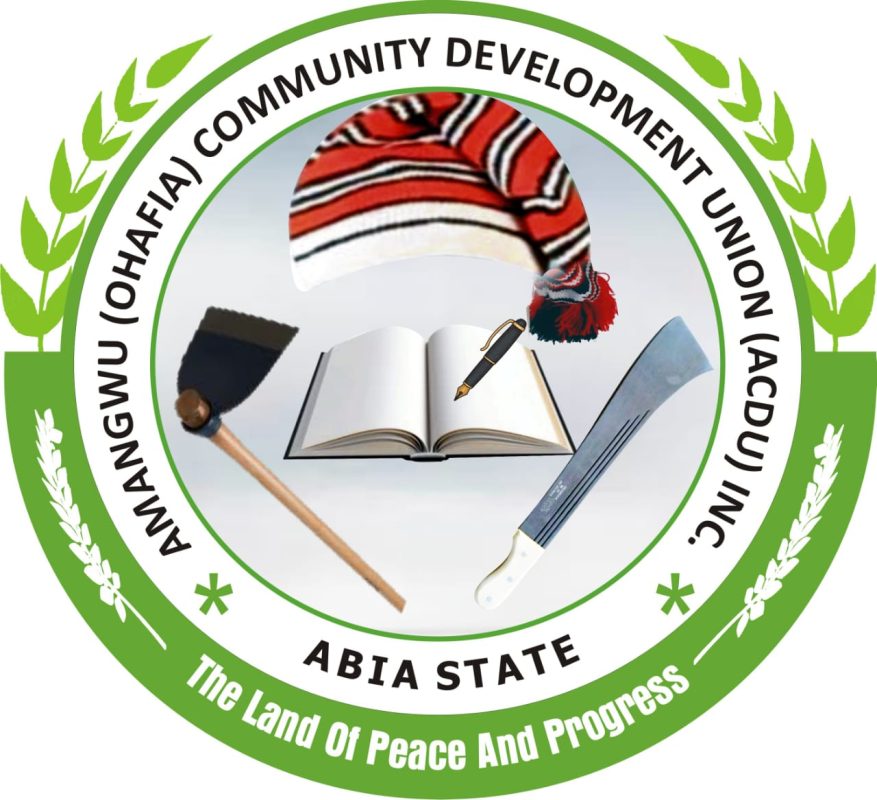Ndi-Iyom Ikpirikpe
A village council of female elders (ndi ichin), often representatives from the various umudi ezi (patrilineage compounds). ndi-iyom Ikpirikpe constituted a women’s court under the leadership of the ezie-ndi inyom. It is a lower court where cases involving women were initially brought, a self-help group, and the regulators of husbands’ treatment of their wives.
Ndi-iyom Ikpirikpe is the instrument of authority used to govern all laws (ilu) and affairs concerning women. Be you a man or woman, once you violate any of the laws, which the women uphold, this ikpirikpe would come to your home, and this entire village of ours will be quietened with fear! Man, woman, and child! No one will. It cannot be abused, once you abuse it, you have incurred its wrath.
Firstly, Ezie-ndi inyom is actually the Queen of the village and her right to rulership and position did not derive from being the wife of a king (except by coincidence) rather, her right to rule derived from her membership of a royal lineage, just like the ezie-ogo. Secondly, the ezie-nwami was autonomous from the “male king,” and it was expected that both worked hand-in-hand with their courts for the peace and well being of their village. The ezie-nwami combined the secular function of presiding over meetings, or speaking for the body (ikpirikpe), with the ritual one of initiating the planting of crops by women in the farms.
Until this ritual called ichu aja izu orie, which involved the ezie-nwami touching the earth with hoe in blessing was performed, nobody planted anything in the community. Anybody violating this taboo “must come and appease us (ikpirikpe ndi inyom) in a ritual of ikwa ali (to mourn the land), because the person would have accursed the soil and poisoned all crops with blight and insect-infection by his action.
The ezie-nwami was actively involved in the political organization of women. Her home was both a palace and a court where the female council held their meetings and heard cases. Because the ezie-nwami was usually much older than the members of ikpirikpe ndi inyom, she appointed a leader among the ikpirikpe members, responsible for carrying and beating nkwa ndi inyom (ikpirikpe drum), the group’s instrument of authority. However, the ezie-nwami remained the custodian of this instrument.
Beyond her village, the ezie-nwami maintained inter-village sisterhood with all the ezie-nwami in each Ohafia village, such that when her cabinet members and all female persons in her village abandoned their homes in protest against men and migrated to another village, the ezie-nwami of the refuge village became a hostess to her fleeing sisters. These concentration of both human and material resources was often too unbearable usually forced the men into negotiating the return of women, and promising to meet any of their demands. Thus, the ezie-nwami was cardinal to active female exercise of political power.
It is a grave offense for a man to make an obscene remark about a woman or female sexuality. Such an action attracted a swift and hostile reaction from the entire women-folk of the village. They would assemble at the residence of the offender, chanting bellicose songs, questioning the manhood of the offender and wondering if he ever had a mother. The women would demonstrate in front of the man’s house in such bodily exposure that could not but embarrass and shame him, his wife, age grades and relatives. The offender would invariably sue for peace by meeting the fines imposed by the council of women elders. If you abused a woman verbally in relation to her okpu or ike (vagina/buttocks), if you tell a woman that she was smelly (ishi ishi), our ikpirikpe cames out, and we the women, would come to you so that you could wash us clean. You could not snatch another woman’s husband and edge her out of her marriage.
We did not permit abortion, both for single and married women. If we learned of a violation of this, ikpirikpe would come out. The violators and their families would perform a funeral for this land. In cases of abortion, ikpirikpe exerted punishment on both the man and woman involved through what is known as ikpa mgbogho (desecration and ostracism), one of the most disgraceful and humiliating things that could happen to a young girl and a young man.
In Ohafia culture, men did not cook: control of food was therefore a political asset for the women. Women played specific roles in welcoming a male warrior back from battle, and in ensuring his re-admission into society, through ritual purification. It is thus by balancing their obligations to their community and protecting their self-interests, that Ohafia women defined their socio-political significance through the formal political institution of ikpirikpe. It is not logical to assert that they were docile and politically invisible.
